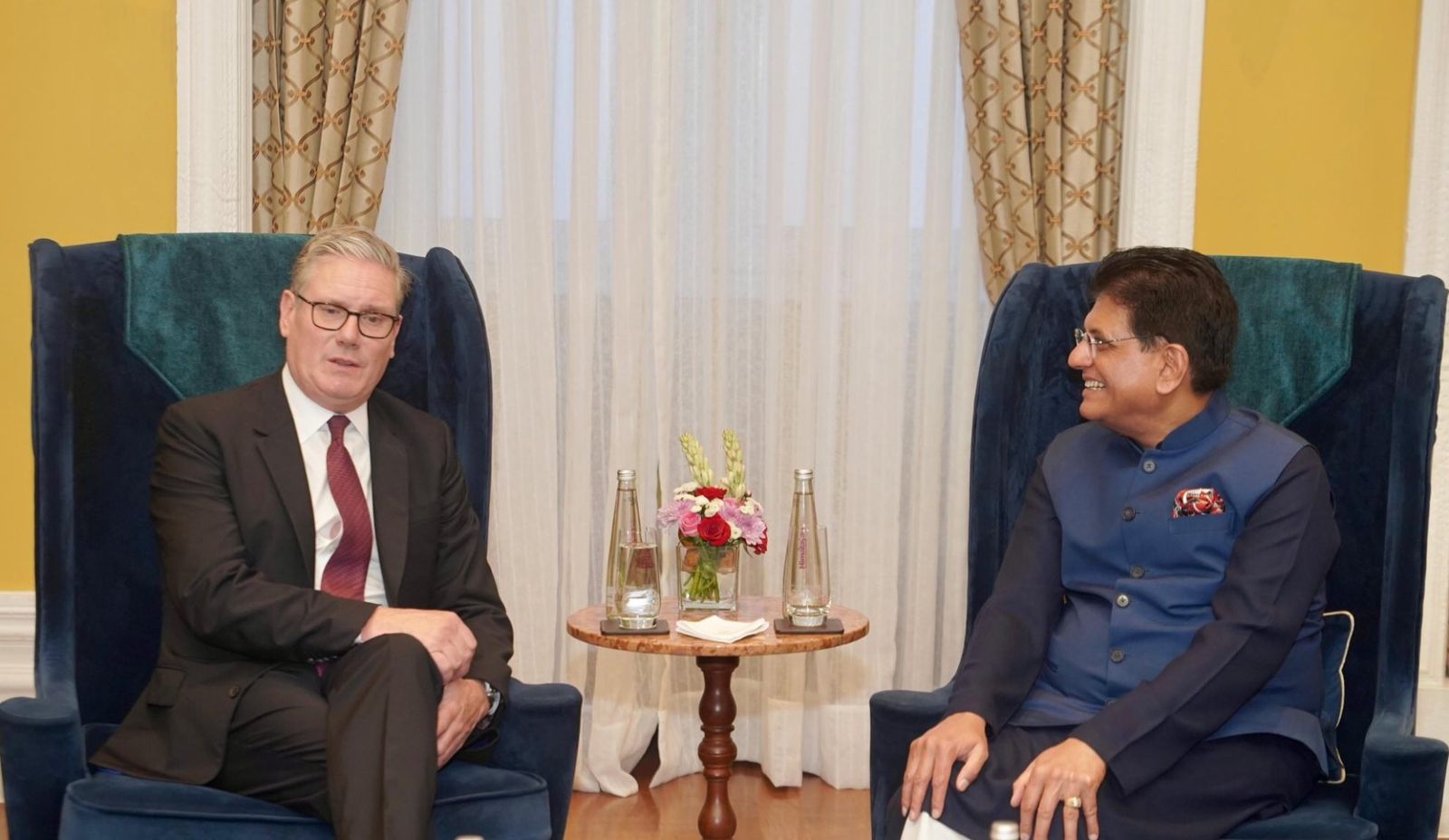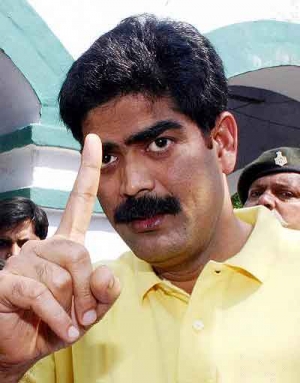Piyush Goyal and UK PM Keir Starmer Explore Ways to Strengthen India–UK Trade and Economic Ties

Mumbai, October 9, 2025 Commerce and Industry Minister Piyush Goyal met UK Prime Minister Keir Starmer in Mumbai on Thursday to discuss strategies for deepening trade and economic collaboration between India and the United Kingdom. The discussions highlighted the growing significance of bilateral engagement and underscored both nations’ shared commitment to enhancing economic ties for mutual prosperity. Starmer arrived in India on Wednesday for a two-day visit, accompanied by the largest-ever UK trade delegation to India. The delegation reflects the United Kingdom’s renewed focus on strengthening commercial engagement with India, covering key sectors such as advanced manufacturing, digital trade, clean energy, and services. Minister Goyal described his meeting with Starmer as an important milestone in the ongoing India–UK economic dialogue. “Delighted to call on UK Prime Minister Keir Starmer. We discussed avenues to further deepen India–UK trade and economic partnership for mutual prosperity,” Goyal posted on X. Prior to his discussion with Starmer, Goyal met with UK Secretary of State for Business and Trade Peter Kyle to advance the operationalisation of the India–UK Comprehensive Economic and Trade Agreement (CETA). Both sides agreed on repositioning the Joint Economic and Trade Committee (JETCO) to effectively oversee the implementation and delivery of the agreement. According to the Commerce Ministry, this step will ensure that the full potential of CETA is realised, benefiting businesses and consumers in both countries. During the talks, both ministers reaffirmed their shared ambition to double bilateral trade by 2030. They explored strategies to leverage the complementarities of the two economies, focusing on areas such as technology-driven industries, sustainable energy, and integrated supply chains. Discussions also covered the importance of regulatory cooperation, reducing non-tariff barriers, and aligning standards to facilitate smoother trade flows. Goyal highlighted the importance of coordinated, results-oriented implementation of CETA, noting that both nations are committed to translating strategic agreements into tangible benefits. Starmer underscored the UK’s intention to create new opportunities for businesses, enhance investment flows, and strengthen economic engagement across diverse sectors. The India–UK trade relationship has been gaining momentum in recent years, with both countries emphasising collaboration on innovation, infrastructure development, and sustainable economic growth. Operationalising CETA is seen as a key milestone that will unlock new avenues for bilateral commerce, create jobs, and foster innovation in high-growth sectors. The discussions also touched upon the role of digital trade in promoting cross-border e-commerce, financial services collaboration, and advanced manufacturing partnerships. Both sides recognised that streamlined regulatory frameworks and joint efforts to remove trade bottlenecks would enhance competitiveness and support long-term economic growth. This meeting between Goyal and Starmer comes at a critical juncture, as both India and the UK aim to solidify their strategic economic partnership while preparing for global challenges and opportunities. By focusing on concrete steps for CETA implementation and trade expansion, the two nations are laying the groundwork for a robust and future-oriented economic relationship, ensuring mutual benefits for businesses, consumers, and the broader population. Piyush Goyal and UK PM Starmer Strengthen Trade Ties Commerce Minister Piyush Goyal met UK Prime Minister Keir Starmer in Mumbai to discuss ways to deepen India–UK trade and economic partnership. Starmer’s visit, accompanied by the largest-ever UK trade delegation to India, focused on advancing the Comprehensive Economic and Trade Agreement (CETA) and doubling bilateral trade by 2030. Both leaders emphasized regulatory cooperation, reducing non-tariff barriers, and integrating supply chains to maximise CETA’s benefits. They also explored opportunities in advanced manufacturing, digital trade, clean energy, and services, committing to a coordinated and results-driven approach that ensures tangible benefits for businesses, investors, and consumers in both countries.




